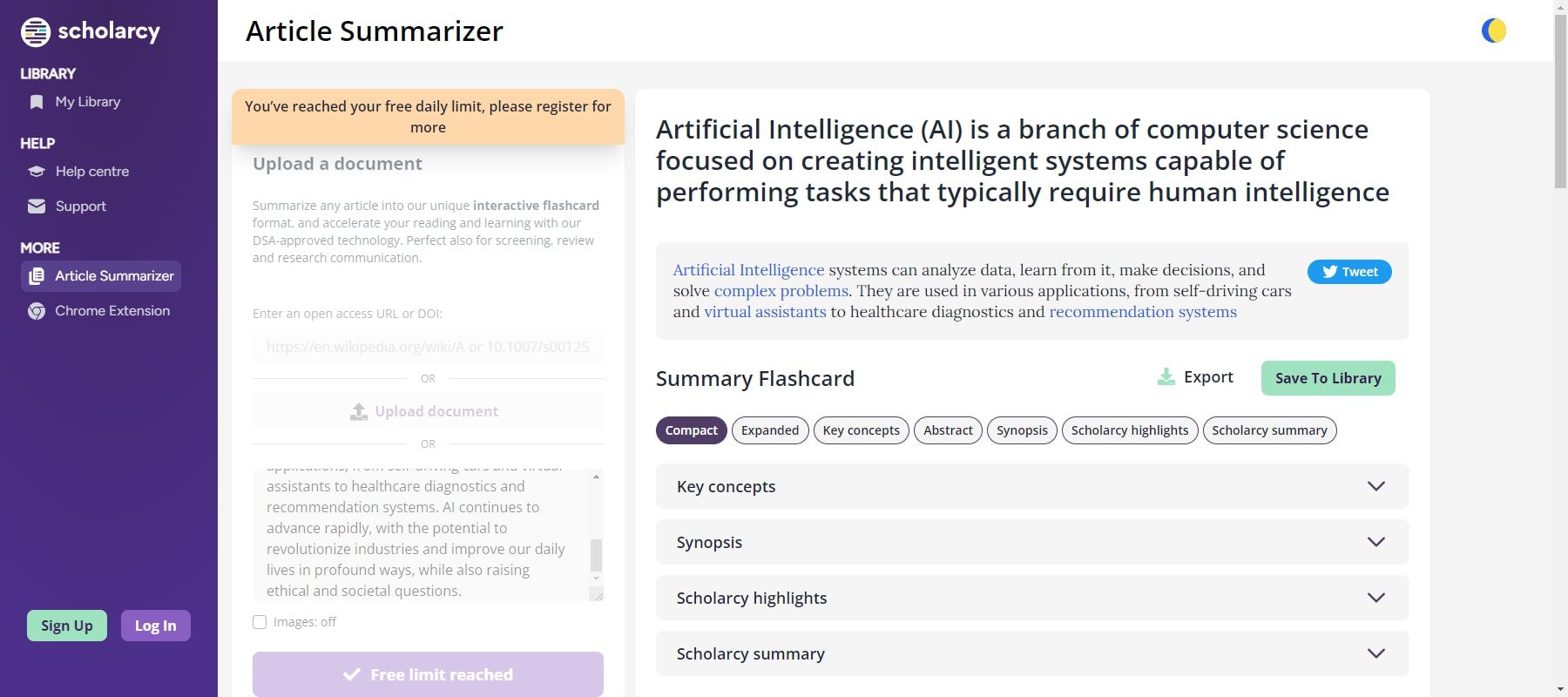
Introduction to Artificial Intelligence for Summarizing Academic Articles
Overview of AI technology for article summarization
In the realm of academic article summarization, Artificial Intelligence (AI) plays a pivotal role. AI technology for article summarization involves the use of algorithms and natural language processing to condense lengthy academic texts into concise summaries. These algorithms analyze the content, identify key points, and generate summaries that capture the essence of the original text. Through machine learning and deep learning techniques, AI systems continuously improve their summarization capabilities, making them more efficient and accurate over time.
Benefits of using AI for academic research
The utilization of AI for summarizing academic articles offers numerous benefits to researchers and scholars. Some key advantages include:
- Time Efficiency: AI-powered summarization tools can quickly generate summaries, saving researchers valuable time.
- Enhanced Accuracy: AI algorithms can extract essential information from large volumes of text with precision, reducing the risk of overlooking critical details.
- Improved Productivity: By automating the summarization process, researchers can focus on analysis and decision-making rather than manual extraction.
These benefits underscore the value of AI technology in streamlining academic research processes.

How AI Summarization Tools Work
Algorithmic process behind AI summarization
Artificial Intelligence (AI) is integral to academic article summarization, employing advanced algorithms and natural language processing. These algorithms analyze text content, identifying crucial information to generate concise summaries. Through machine learning, AI systems continually refine their summarization capabilities for improved efficiency.
Accuracy and reliability of AI-generated summaries
AI-driven summarization offers researchers numerous advantages, such as time efficiency by swiftly producing summaries, enhanced accuracy in extracting key data from extensive texts, and improved productivity through automation. Researchers can now focus on analysis, aided by AI technology that streamlines the academic research process.

Advantages of Using AI for Article Summarization
Time-saving benefits for researchers and students
Artificial Intelligence (AI) streamlines the academic article summarization process, providing researchers and students with a time-saving solution. By swiftly analyzing text content and extracting key information, AI-generated summaries reduce the time spent on manual summarization tasks. This efficiency allows researchers to focus on in-depth analysis and critical thinking, while students can quickly grasp the main points of complex research articles for academic purposes.
Improved accessibility to complex research materials
AI-driven summarization tools enhance accessibility to extensive research materials by condensing them into concise summaries. Researchers benefit from improved data extraction accuracy, enabling them to efficiently navigate complex information. Moreover, students gain better comprehension of challenging academic texts, facilitating their learning process and enhancing overall understanding of research topics.

Limitations and Challenges of AI Article Summarization
Potential issues with context understanding
In AI-driven article summarization, challenges may arise with context understanding, leading to inaccuracies in summarizing complex research content. AI algorithms may struggle to grasp nuances and contextual meanings, impacting the quality and precision of generated summaries. Researchers and students must remain cautious when relying solely on AI-generated summaries, as contextual errors could result in misinterpretations and incomplete information extraction.
Ethical considerations in AI-generated content
The use of AI for article summarization raises ethical considerations regarding plagiarism and intellectual property rights. AI tools should be employed ethically, ensuring proper citation and attribution of sources to maintain academic integrity. Additionally, there may be concerns about bias in AI-generated summaries, affecting the objectivity and comprehensiveness of information presented. Stakeholders must address these ethical challenges to uphold academic standards and promote responsible use of AI technologies in research and education.

Comments
Post a Comment